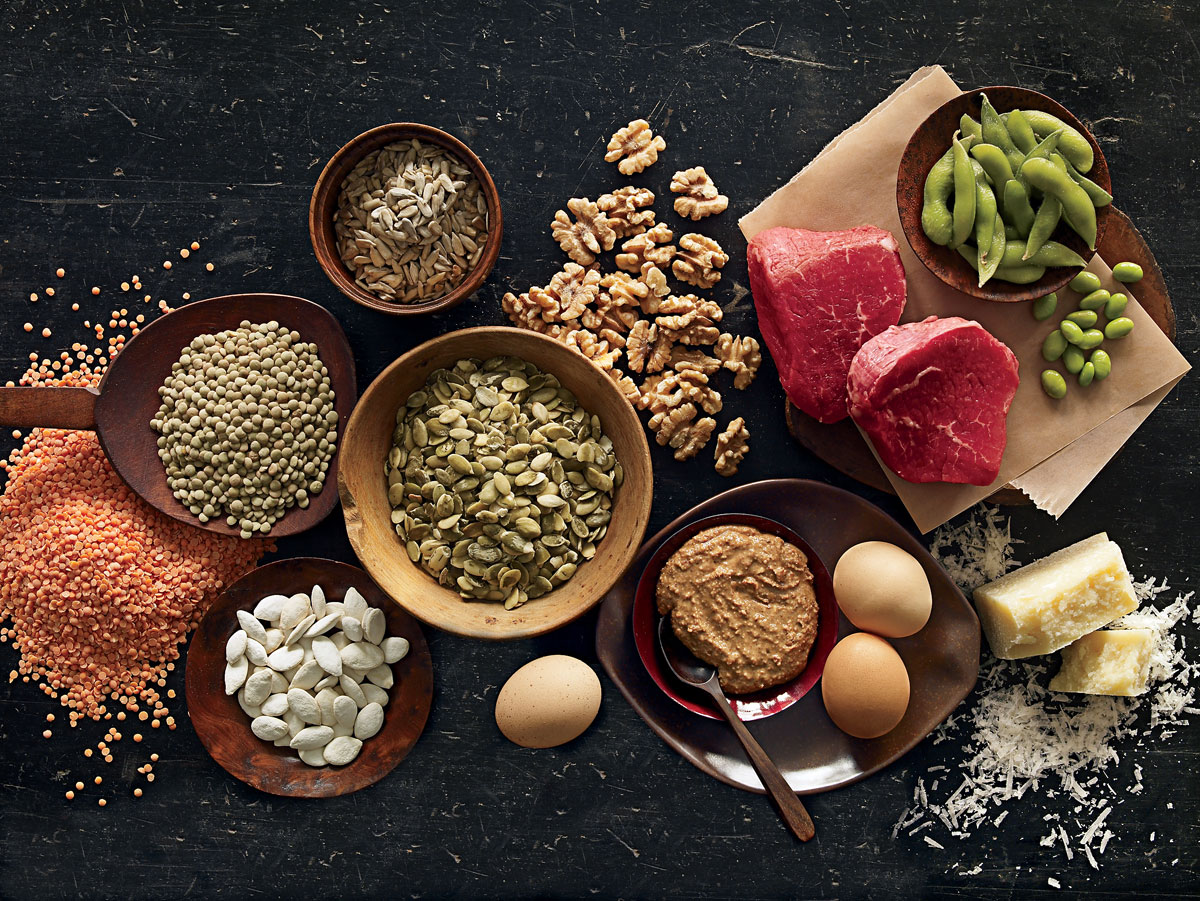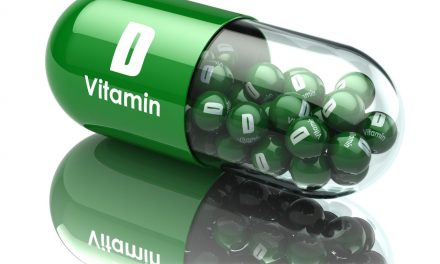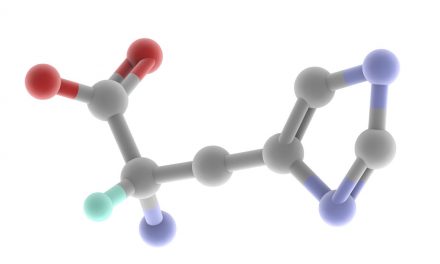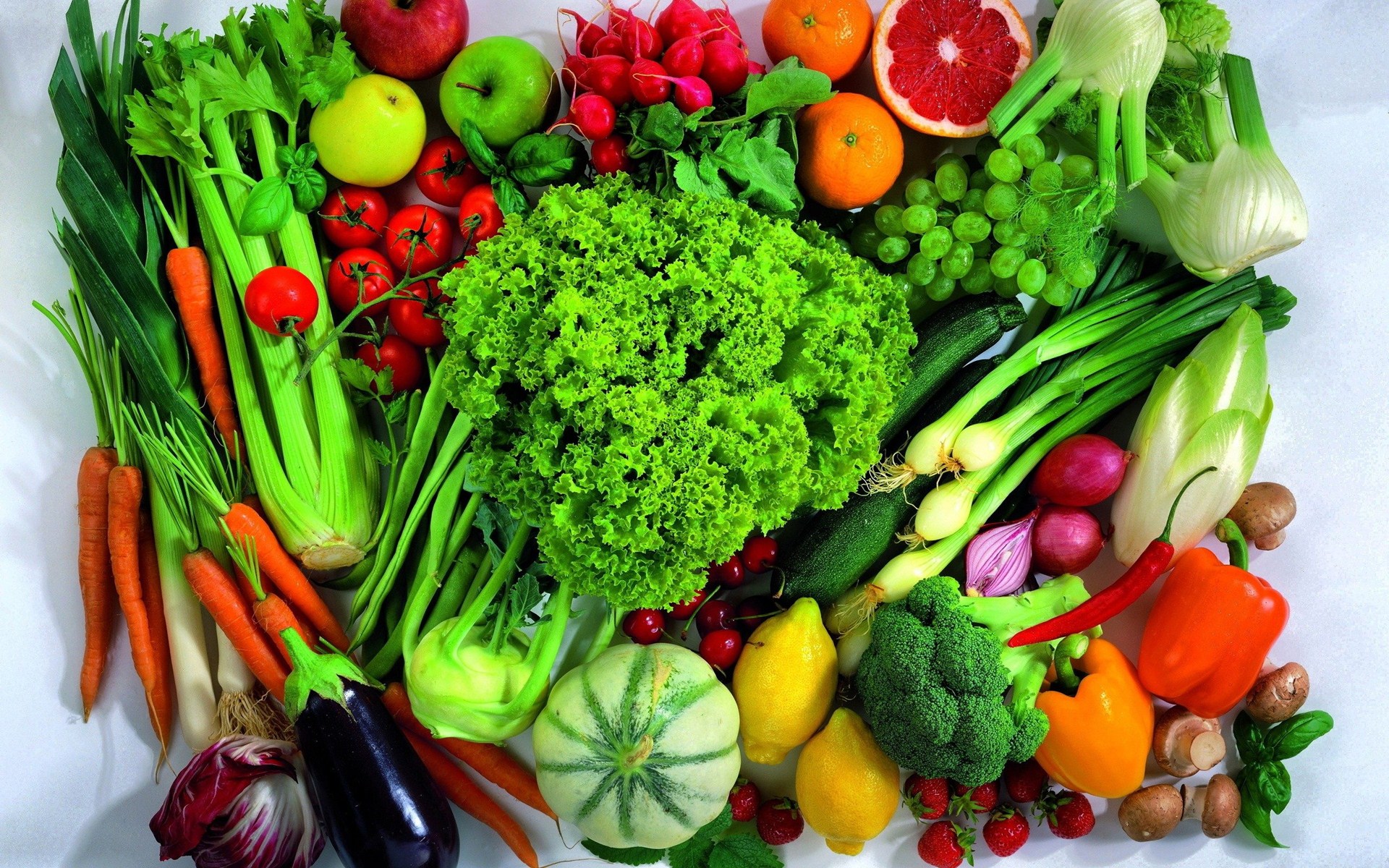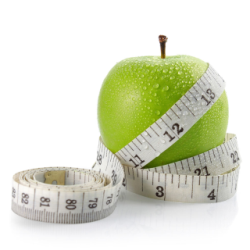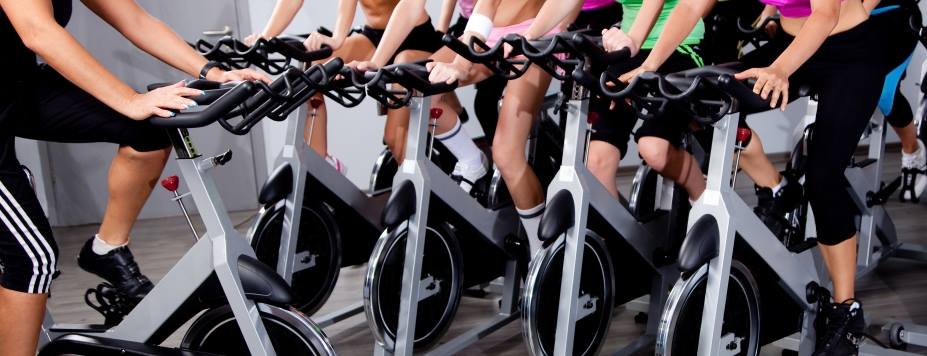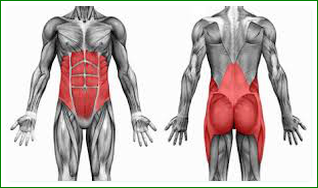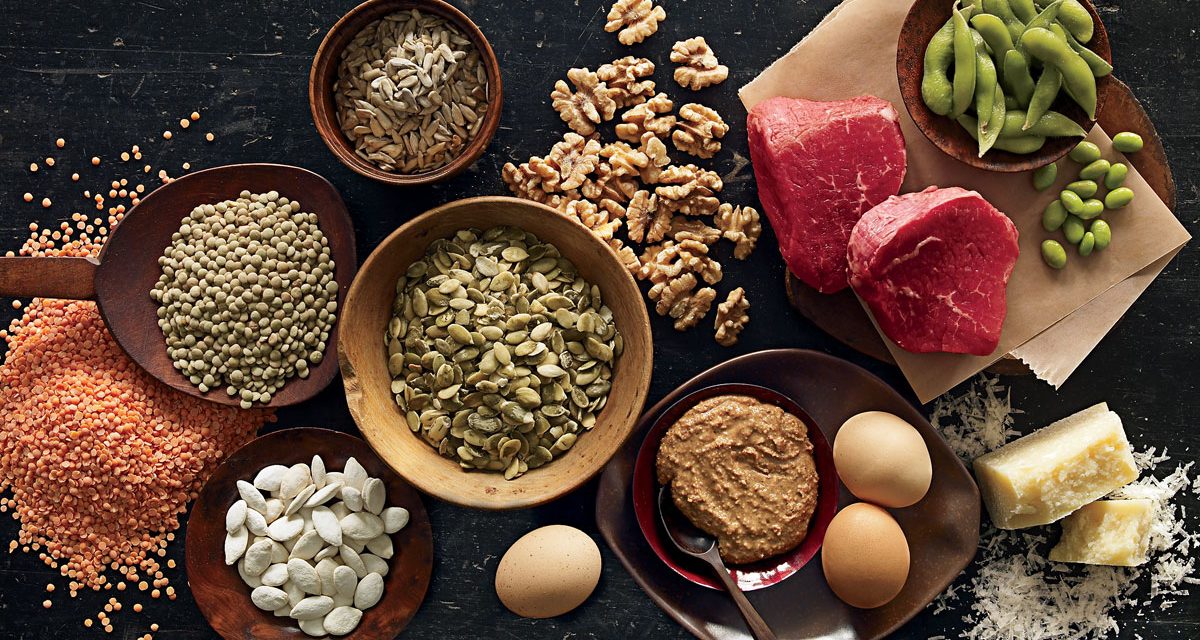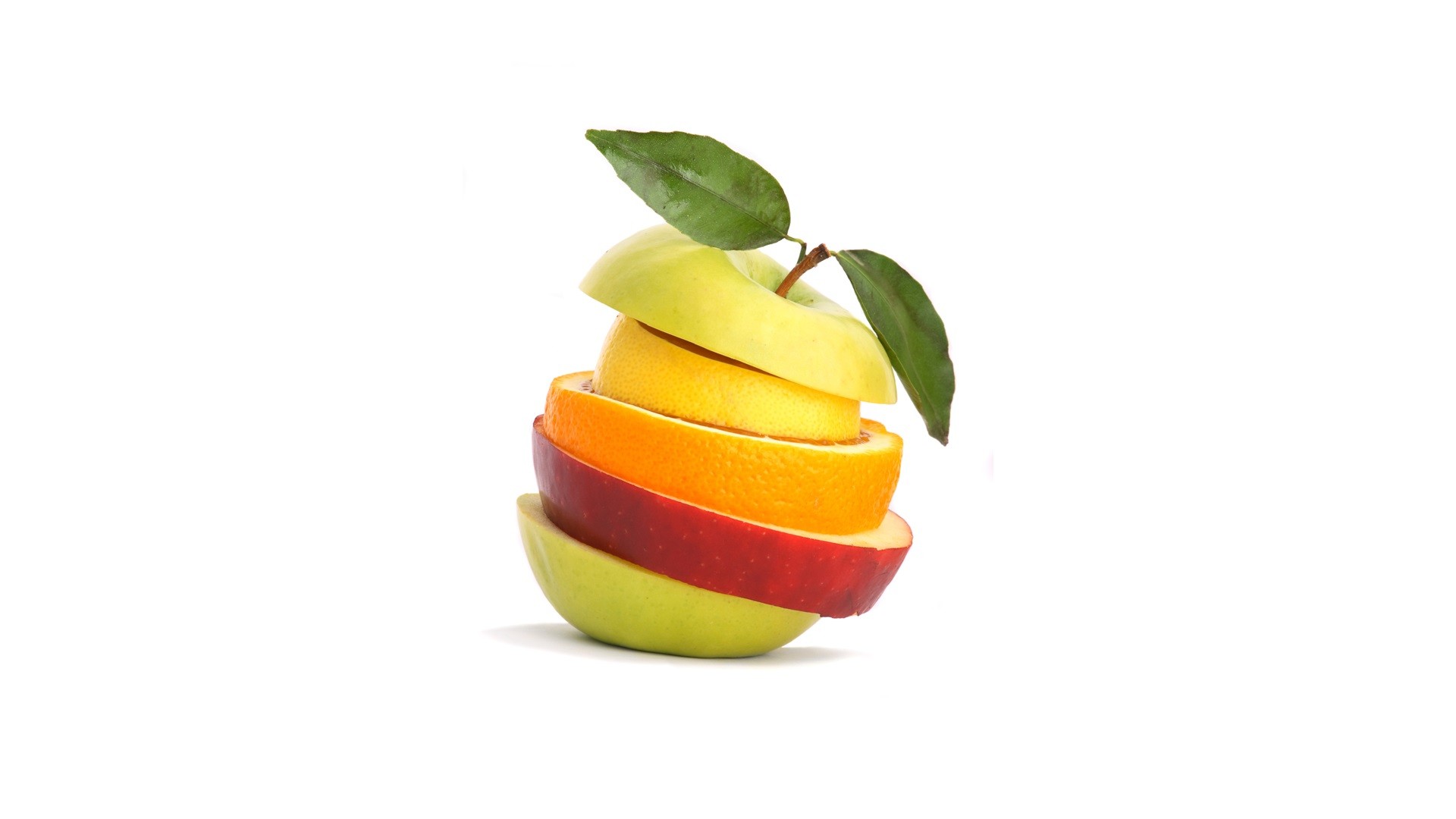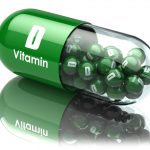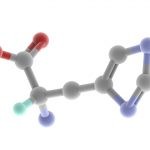Best Sources of Protein
Protein is an essential nutrient, responsible for multiple functions in your body, including building tissue, cells, and muscle. Proteins are composed of amino acids are used to construct a protein. There are 20 different amino acids most commonly used to construct proteins. Different types of proteins require different combinations of amino acids because they have different roles to play in the body. Everyone needs protein in their diet and any excess protein is turned into energy by the body. A deficiency in protein leads to muscle atrophy and impaired functioning of the human body in general. High protein foods include meat, fish, cheese, tofu, beans, lentils, yogurt, nuts, and seeds. If you do endurance sports or weight training you’ll need to increase your protein intake and to factor it into your training routine at specific times to reap its muscle-boosting benefits.
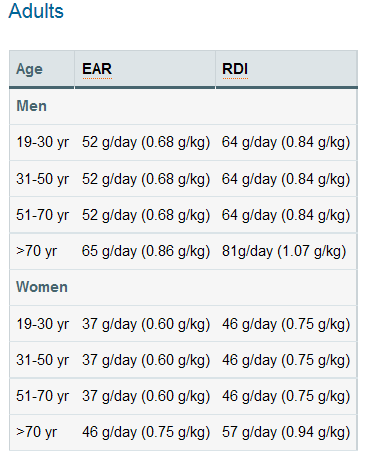
Rand WM, Pellett PL, Young VR. Meta-analysis of nitrogen balance studies for estimating protein requirements in healthy adults. Am J Clin Nutr 2003;77:109-27.
For sporty individuals, a daily dose of around 1g of protein per 1kg of body weight is recommended. After exercise, protein is particularly important since muscles need it to recover and grow. A portion of protein (15-25g) is recommended within 30 minutes of exercise when your muscles are particularly receptive to protein synthesis.
Proteins are made up of a collection of 20 amino acids. Of these, eight are classed as ‘essential’ and need to be sourced from food, while the other 12 are classed as ‘non-essential’ and can be produced inside your body. ‘High-quality proteins’ such as eggs and meat offer more muscle-building amino acids than other protein foods, so are considered more valuable sources of protein, particularly if you do lots of exercises. High-quality proteins also contain branched-chain amino acids (BCAAs), which are key in supporting muscle recovery. Leucine, in particular, makes up one-third of muscle protein and helps to stimulate repair after exercise.
Like simple and complex carbohydrates, proteins are absorbed at different rates in the body. Whey protein is digested quickly so is a good option just before and after exercise. Casein, the primary protein in milk, releases its amino acids slowly, so is particularly useful in the morning, between meals and at bedtime. Protein shakes and powders contain these proteins and are helpful before and after sports, but you can get the protein you need from natural sources too.
Best Sources of Protein
- Eggs
The egg is the king of food protein. A medium egg has around 6g of a protein of the highest biological value, meaning it comes complete with all 20 amino acids in the most digestible form. - Milk and dairy foods
Dairy foods are rich in protein and contain bone-building calcium, too. Yogurt is a great protein-rich food, a combination of casein and whey protein. Due to its long aging, much of the protein in Parmesan cheese has been “pre-digested” and it takes just 45 minutes to digest. You’ll get bone strengthening calcium, which is vital for making your muscles contract. - Fish and seafood
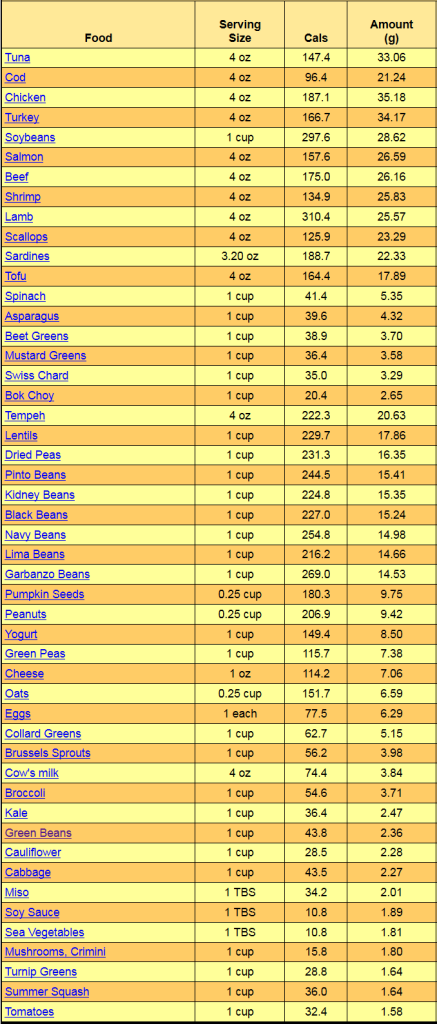
Fish and seafood are good sources of protein and are typically low in fat. While slightly higher in fat than other varieties, salmon is reached in heart-healthy omega-3 fatty acids. Cod is the animal protein with one of the lowest saturated fat content, serving just 0.5g of fat per 100g and it will provide you magnesium, which generates the energy needed for you to train, protect you against cramps and help your muscles contract. Clams and other mollusks will provide you with selenium and vitamin B12, which keeps your nervous system healthy, gives you energy and is used to metabolize fats, carbs, and protein. - Soya
Soya protein foods and soya-based drinks will help post-recovery, plus they can help to lower cholesterol and reduce the risk of heart disease. It’s very low in saturated fat (0.5g) and it is equal to whey at building muscle. It’s also very rich in iron, which provides additional oxygen to your muscles, thereby allowing you to do cardiovascular exercise for longer. - Nuts
Nuts such as pistachios are a practical protein choice if you’re on the move. Around 50 pistachio nuts will provide 6g of protein, plus sodium and potassium, the electrolytes lost in sweat during exercise. - Tofu
Good source of protein, it is also rich in manganese. This mineral is used to strengthen bones and metabolize carbs, amino acids and cholesterol and unsaturated (good) fats. - Beans and peas
These foods are excellent sources of plant protein, and also provide other nutrients such as iron and zinc. They are similar to meats, poultry, and fish in their contribution of these nutrients. They are excellent sources of dietary fiber and nutrients such as folate and potassium. - Pork
Pork is one of the richest sources of leucine and therefore a great addition to a post-exercise meal or snack. Eggs, chicken and lean beef also provide good amounts of leucine. Pork is also a rich source of zinc which helps your body produce the muscle-building hormone testosterone. - Chicken and turkey
When it comes to animal protein, opt for lean protein from white meat poultry such as chicken and turkey. One large breast will provide you niacin which will help your body produce energy from all the foods you eat and keep both your nervous and digestive system healthy. It’s low in saturated fat and carbs, making it an ideal protein source if you’re trying to lose weight or gain lean muscle. - Lean beef
It is a good source of zinc, which aids in post-exercise tissue repair and in the conversion of food to fuel. Beef is one of the richest natural sources of the strength booster creatine which is a famously efficient muscle building aid but it takes too long to digest, leaving your muscles hanging for their protein fix.
Other best sources of protein are Tuna (yellowfish), Lean flank steak and Soybeans.
